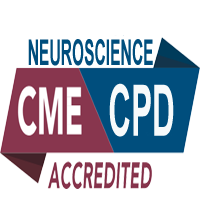
Ahmed Ammar
Dammam University, Saudi Arabia
Title: Value Based Medicine- Ethical issues in the daily practice
Biography
Biography: Ahmed Ammar
Abstract
Research is a corner stone for the development of medicine. Good Medical practice is not only based on evidence, skills, knowledge and technology but also on good values and ethics in medical practice and medical research(i.e. value-based medicine). Value Based medicine is concerning about patient’s rights, Patient’s family rights, researcher’s rights and animal rights among other related subjects to ensure the best and safest ethical approach to every step in medical practice and research and to enhance the best benefit for the patients. Many scholars and philosophers recently studied the medical ethics (Bioethics) as solid science to highlight the ethics of medical practice and research and suggest the different and necessary ethical codes either on medical practice or in medical research. The main pillars of good neurosurgical and neurology practice are based on 1, knowledge, 2. Skills and 3. Technology all these three basic elements should be integrated for the interest of the patient in a clear vision to provide that patients with state of art treatment and to create strategy to achieve this aim and draw plans in order to obtain and maintain such uncompromised goal. The vision and strategy and the medical practice should be performed within a rigid frame of values and ethics. Therefore, it is quite important to include medical ethics as one of the main subjects of different CME and training programs. The trainees should be encouraged to know about the ethics as science and art. Medical ethics may be come under this chapter and it is based on such main ethical principles; 1. Autonomy; regarding the right of patients to choose methods of the management of their medical problem or to refuse it- (Voluntas aegroti suprema lex.). 2. Beneficence; To determine that the physician or surgeon must consider patient’s benefit as his solo goal for his relationship with patient - (Salus aegroti suprema lex.). 3. Non-maleficence: clearly means "first, do no harm" (primum non nocere). 4. Justice: concerns the application of justice , fairness and equality by all means to every patient. Every patient has the right to receive the best possible and avoidable medical care. 5. Dignity: it goes in both ways ; patient and his treating medical staff should be treated by respect and their dignity is preserved always. 6. Truthfulness and honesty: the relationship between a patient and his treating physician or surgeon should be based on honest and truthfulness.

